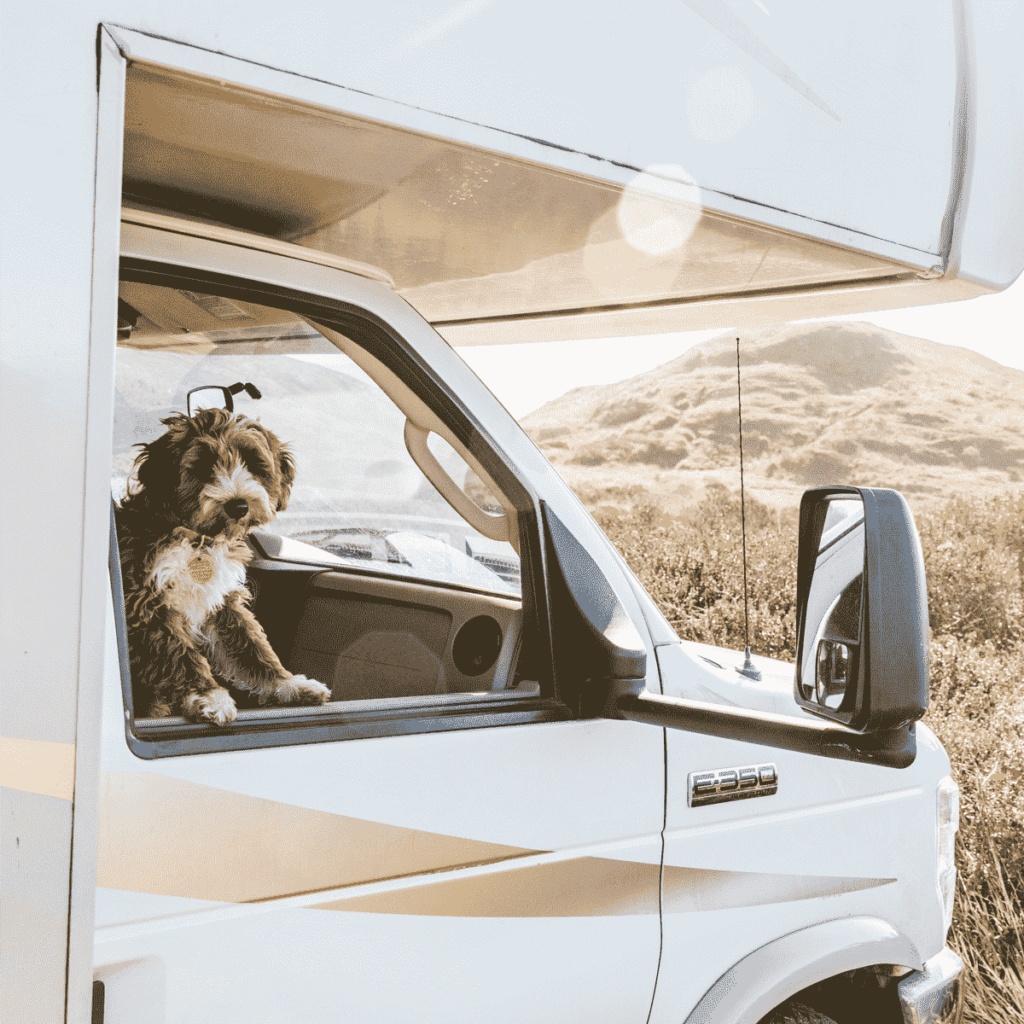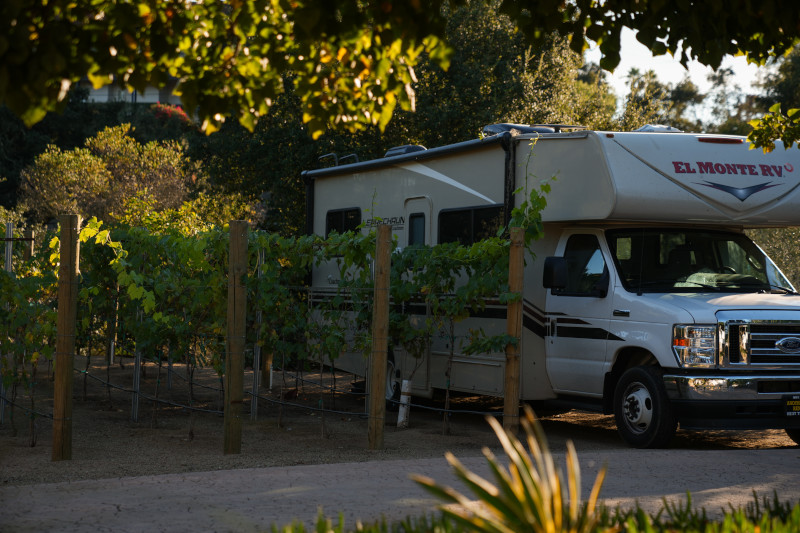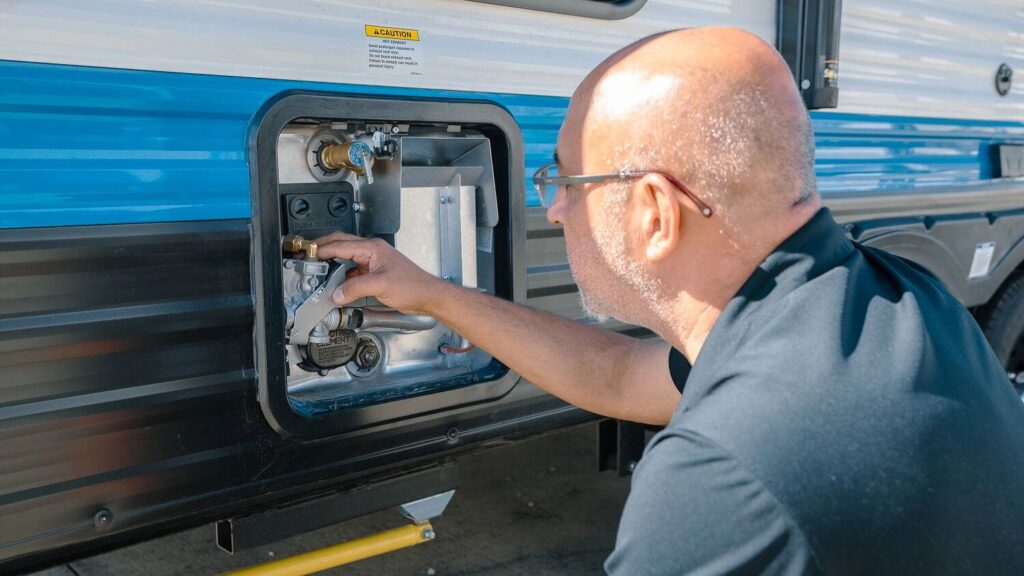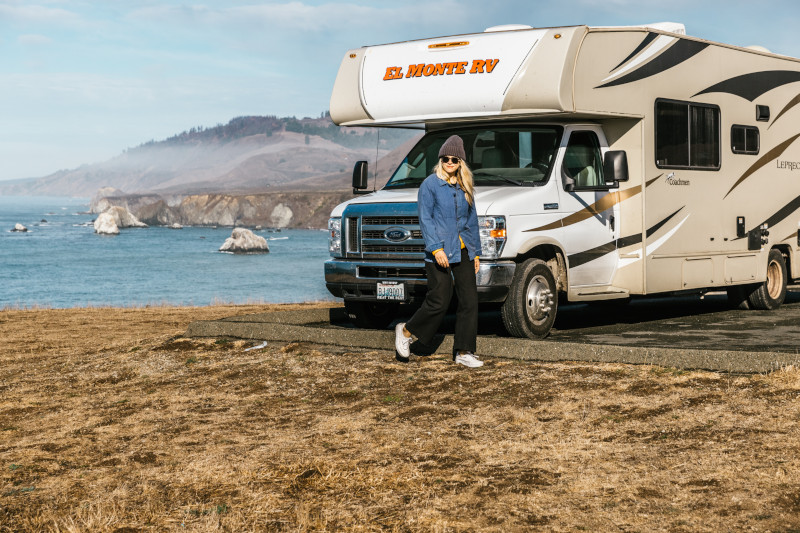So here you are, a new RV owner and you think you have prepared for all eventualities. But, what do you do when something breaks on your RV? If you are smart, you’ll have studied up on all the You Tube videos you can for fixing minor issues on your RV, and there are many. But, when your generator goes, that can be serious.
Here is the best advice we could find for how you can fix your RV generator.
There are often simple reasons why your RV generator won’t start, and we will address the most common ones here.
Here are some of the most common reasons why your RV generator won’t start:
- Low Oil Level
- Battery Issues
- Lack of Fuel in RV
- Old Fuel
- A part is broken and needs to be replaced
- The generator is old and worn out
Now, this list is not all-inclusive. These are simply the most common reasons why your RV generator won’t start and are a good starting place if you’re troubleshooting.
Honestly, issues beyond this list usually require the help of a certified technician to diagnose and fix appropriately.
Here are some suggestions for fixing the common issues we listed above:
1. Low Oil Level
Like many mechanical systems, your generator needs oil to keep things running smoothly. If the oil is low, the different aspects of the generator will not have proper lubrication. When this happens, they’ll malfunction or just quit working altogether.
The Fix
Like many cars, the generator should have an oil dipstick to check oil levels. If your generator is acting strange or won’t start, checking the oil should be one of the first things to do.
Although generators run on standard motor fuel, not all of them use the same kind.
If the oil is low, check your RV owner’s manual to see what type of oil you should use in the generator.
You can always top up the oil yourself, but if the oil is really dirty, it will need to be changed. If you are unsure of how to do this properly, bring it to a mechanic.
2. Battery Issues
The built-in battery requires voltage from the main house or coach battery to start.
So, if the battery isn’t fully charged or connections are not fully attached, and tight, the battery can cause the generator not to start at all.
The Fix
If you suspect the battery could be an issue, first see if the battery is fully charged. Then, if that isn’t the problem, check all of the connections.
Are the connecting points clean and tight? You may need to adjust them and clean them off if they aren’t.
There is also the possibility of areas of the battery could be corroded or leaking, so check every aspect that you can.
In some cases, the battery is just old and worn out. This happens with car batteries too. So, you may need to change the battery and buy a new one.
3. Lack of Fuel in your RV’s Fuel Tank
Your RV’s generator runs off of either diesel, gas, or propane. If your RV’s fuel tank gets below a quarter of a tank, there will not be enough to provide fuel for the generator. Therefore, the generator will not run if the RV fuel tank is too low.
The vast majority of built-in RV generators will run off of the RV’s fuel tank of either diesel or gas instead of having their own tank.
To prevent the generator from depleting your RV of all of the fuel, the generator will switch off if the fuel gets too low. Otherwise, you’d be stranded because you decided to run your generator through the night. This won’t be an issue if your generator runs on propane.
However, you should check the fuel level of the propane if your generator stops working.
The Fix
Easy-peasy. Go to the gas station and fill up your RV’s fuel tank. But, if your generator still isn’t working after you’ve put more fuel in your tank, then you’ll need to look into other possible reasons.
4. Old Fuel or Not Enough
Some RV generators are stand-alone units and do not have a fuel line connected to your RV fuel tank. So, in some instances, your fuel may be low in the generator itself. Another common scenario is the fuel has been sitting in the generator between travel seasons and is just old.
You can only store the fuel for so long, so just like your lawn mower fuel, if it is too old, your generator won’t run.
The Fix
The only thing you can do for this is to either add or replace the fuel that is in the tank. Be sure that you check the users’ manual before you do this though!
Caution: Adding the wrong type of fuel can destroy the generator.
If you suspect that the generator’s fuel is old, not low, then the fuel filter may also need to be changed. If you do not have a good base of mechanical knowledge, it may be best to bring the generator to a mechanic to change out the old fuel. They’ll be able to properly clean out the tank and replace the fuel filter before adding new fuel.
5. Parts Should Be Replaced
The fuel, battery, and oil issues are not the only things that can go wrong with an RV generator.
These are simply the most common culprits and the first to check if your generator stops running. With so many other parts in the generator, really anything could be wrong.
The Fix
This will either take some troubleshooting on your end or you should have a mechanic take a look to diagnose the issue at hand. You may be able to look around at some of the connecting points or critical moving parts to see if there is corrosion or if anything is loose/broken. But, if there isn’t physical damage, it can be hard to determine what is wrong on your own.
6. It’s Just Old
Everything mechanical has an expiration date. You can provide a long life for machines by giving them the proper upkeep and maintenance that they need, but eventually, they will need to be replaced. If you’ve had your generator for a long time, you may have just worn it out. This should also be a consideration if you bought your generator used. You may not know how much it has been used or how well it was maintained.
The Fix
Buy a new one! Try your best to fix the old one and consider bringing it to a mechanic.
The Importance of General Maintenance
As with our cars and other motorized vehicles, RVs need proper upkeep to stay in tip-top running shape. Not all aspects of the RV require a ton of attention, but you should spend time making sure the generator is functioning correctly. There are a lot of aspects of an RV’s generator that can break, corrode, or just get worn out with use and time. All of the connecting wires, rubber hoses, and fluids that keep it running should be checked often.
Maybe something is clogged, or the antifreeze is low. These are all things you can check during a general maintenance look over.
In most cases, a well-maintained generator will outlast other parts of your RV. Stick to a good maintenance routine, and you probably won’t run into many of the issues we’ve listed above.
Some things you can’t avoid, but at least you can check them before, and you’re ahead to the game.
When in Doubt, Call a Certified Technician
While RVing can be the perfect hobby for do-it-yourselfers, some things are best left to the experts. In many instances the generator issues are solvable on your own. However, as with most mechanical things, breaks and fixes can sometimes get complicated.
If you are unable to diagnose the reason your generator won’t start or is malfunctioning, take it to someone that can. At least they will be able to tell you the problem and if it is fixable before you rush out to buy a new one.
For more great RV repair tips, check with your El Monte RV Sales dealer, who may help you with any questions you may have. And, don’t forget, when you are considering getting an RV, check out our clean refurbished models at El Monte RV Sales.



